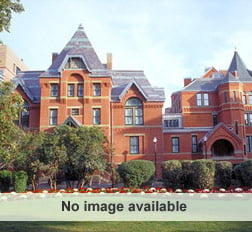School Stats
- Resident Tuition $27,169
- Non - Resident Tuition $40,775
- Application Fee $30
- AVG OAT 331
- AVG GPA 3.7
Crime: Detailed Stats >
Admissions Information
- Admissions
- MCO 231
- 1124 S. State Street
- Big Rapids, MI 49307
- United States
- Phone: (231) 591-3703
- Email: [email protected]
- Website: www.ferris.edu/mco/
School Overview
Ferris State University Michigan College of Optometry Fast Facts
School Info
The Michigan College of Optometry at Ferris State University is at the leading edge of vision care technology and patient care delivery. Among the smallest of the nation`s optometry schools (only 36 students per class), Ferris offers virtually personalized instruction by one of the country`s finest optometric faculties, as well as, the advantages of a large system of clinics throughout the United States and Canada that assures a thorough exposure to the widest possible range of patient-care experiences. Although the College is small, Ferris State University is large (over 11,000 students) and, therefore, offers all the educational, cultural and social advantages of a major institution of higher learning.
Curriculum
The Michigan College of Optometry is a national leader in curricular innovation and is committed to producing graduates who have not only information resource skills, but also an affinity for lifelong learning and professional growth. By employing the latest instructional and clinical technologies, students learn to emphasize cognitive problem solving over repetitive technical manipulation. As befits health care practitioners, personal and professional ethics are also stressed as an integral component of the Ferris education.
Facilities
The fourth professional year extends over a full calendar year divided into three 15 week rotations. Some students elect to spend one rotation in residence at the Campus Optometry Clinic, while electing two others from among the affiliated external clinic sites which include the Department of Veterans Affairs Medical Centers, health maintenance organizations, military medical facilities, ophthalmic co-management consultation centers, State Department of Corrections facilities, and optometric and ophthalmalogic private practices. Fourth year externships provide experience working in multi-disciplinary health care settings, increase the number and diversity of patient care experiences, and broaden the awareness of factors affecting health care delivery in our society. Students also spend clinic time in specialty clinics, including: pediatric primary care and developmental vision analysis, infant clinic, medical eye care (including urgent and emergency on-call service), geriatric primary care, low vision service, contact lens care, and advanced primary care practice.


What are your suggestions for the admissions office?